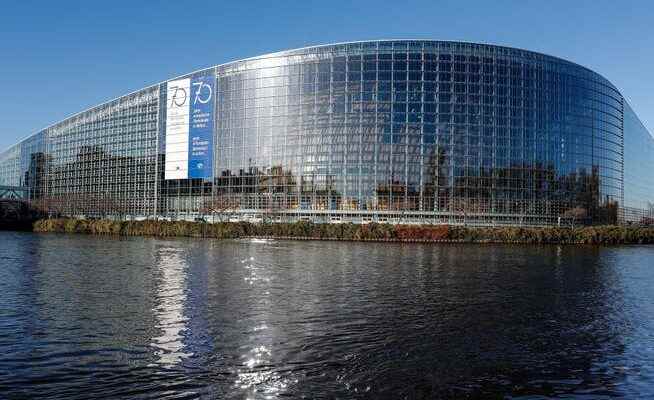The EU Parliament declares Russia a “state sponsor of terrorism”. You can understand that emotionally. But the step has no legal consequences – and it doesn’t make any sense politically either.
The EU Parliament wants to further restrict diplomatic relations between member states and Russia. Pictured is the Parliament building in Strasbourg on November 23, 2022.
Angry tongues like to claim that the European Parliament makes up for its own powerlessness with grand gestures. This Thursday, for example, the members of parliament who are plying their trade between Brussels and Strasbourg want to pass a resolution on the football World Cup in Qatar. It is very likely that the EU House of Representatives will denounce homophobia in the oil and gas-rich Gulf State and the unfortunate role played by Fifa. The liberal Hungarian Katalin Cseh spoke of a “world championship of shame” in advance.
she is right. But who will benefit from the resolution in practice apart from the member states, who can outsource their outrage to the EU – and thus not have to jeopardize their national interests? You really don’t want to mess with the sheikhs.
Cruel warfare
Also the recent resolution on Russia is initially eloquent. A large majority of MPs voted in Strasbourg on Wednesday to describe the Russian Federation as a “state that encourages terrorism” and “uses terrorist means”.
The background is the most recent development in the Ukraine war: The EU Parliament speaks of deliberate attacks and atrocities by the Russian armed forces and their deputies against the Ukrainian civilian population. They are said to be dealing with serious violations of international and humanitarian law. With actions that can be seen as acts of terrorism and war crimes.
No one can seriously disagree with this statement. The list of Russian atrocities perpetrated against civilians, enemy soldiers and their own deserters is long. Moscow’s troops abducted, tortured and executed countless locals in the occupied territories.
Responsible for this are regular armed forces, but also mercenaries like the Wagner group, who are supported by the Kremlin. They are what is meant when we talk about sponsorship of terrorism. The EU Parliament is also keeping an eye on Russia’s role in the conflicts in Libya, the Central African Republic, Mali and Syria, where weapons were supplied to defend the Asad regime and systematic airstrikes were carried out against the civilian population.
MEPs are demanding that the EU and its member states further restrict diplomatic relations with Russia and limit all contacts with official representatives to the absolute minimum. However, that is already largely the case: since the beginning of the war, the EU states and Russia have expelled numerous diplomats from the other side.
Even the US is reluctant
Does the resolution have consequences? It is not legally binding. Neither the Member States nor the Commission are obliged to comply with it. In any case, Brussels would be breaking new ground, because up to now the EU has only included individuals, groups and institutions on a terror list. This is different in the USA, where countries such as Cuba, Iran, Syria and North Korea are also being sanctioned as “sponsors of terrorism”. But even Washington is currently avoiding classifying Russia as a terrorist state – without denying Moscow’s atrocities.
Americans say you don’t negotiate with terrorists. One day, however, the West should not be able to avoid sitting down again at the negotiating table with Russia. In Strasbourg, people don’t want to wait that long and prefer to make a “sign” quickly. This is emotionally understandable, but politically meaningless.
The Brussels correspondent Daniel Steinvorth Twitter follow.
